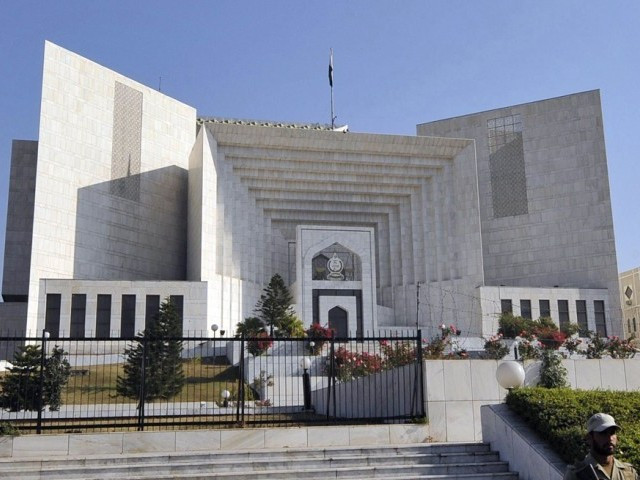PM's disqualification: Statements made in Parliament have constitutional protection, says AAGP
Additional Attorney General of Pakistan contends matter falls within the purview of speaker, ECP chairman

PM's disqualification: Statements made in Parliament have constitutional protection, says AAGP
The court had sought a reply from the AAGP in its order of October 23 order as it determines the maintainability of a petition seeking disqualification of Prime Minister Nawaz Sharif from the National Assembly over his alleged remarks.
The petition had been filed by Insaf Lawyers Forum Punjab Senior Vice President Gohar Nawaz Sindhu. The Lahore High Court had previously rejected his petition.
The petitioner had claimed that the premier had asked tghe army chief General Raheel Sharif to act as a ‘mediator’ between the government and protesting parties – the Pakistan Tehreek-e-Insaf (PTI) and Pakistan Awami Tehreek (PAT) – and to serve as a ‘guarantor’ to any agreement between the parties concerned. He alleged that the premier later denied this on floor of the House.
Bit the AAGP contended in his reply that the premier's statement is protected under the Constitution. “This statement is protected under Articles 66 and 69 of the Constitution. A member of Parliament enjoys complete freedom of speech in respect of anything said in Parliament and is not liable to any proceedings in this respect, except Article 68 imperatives.”
Rana added that Article 66 accorded a complete a bar from questioning the proceedings of Parliament. This was extended to members of Parliament who were accorded immunity for statements made in the House.
The additional attorney general said that the question of the disqualification of members of Parliament was by nature a “political question,” which falls under the constitutional purview of the speaker or ECP chairman.
“The Ballentine’s Law Dictionary defines a political question as the determination of which is a prerogative of the legislative or executive branch of the government, so as not to be appropriate for judicial inquiry or adjudication.”
In his reply, Rana also raised doubts about the petitioner’s sincerity and honesty.
“This is in view of his admitted association with a political party whose leader has been a member of the Parliament and he has been maligning a former chief justice of Pakistan, along with other members of the judiciary.”
Rana in his reply added that the case raised several factual controversies, which could only be established through submission of evidence.
“It is established that courts in their constitutional jurisdictions exercise a discretionary power and may not enter into factual disputes.”
The petition is not maintainable, “misconceived and not supported by law and is accordingly liable to be dismissed,” Rana added.



















COMMENTS
Comments are moderated and generally will be posted if they are on-topic and not abusive.
For more information, please see our Comments FAQ